One foot forward with a mission echoing around their heads, young people pursue their dreams. Whether it be to lead, organise, move their bodies, feel the music in their bones or narrow their eyes in focus with paintbrush in hand, they aim for their goals. And in doing so like everyone else, they encounter obstacles.
The arts sector has almost scared people from joining it. Young people have been told this sector is unstable, not well paid, or that there are limited careers within the sector. It’s no surprise that this would put some young people off as they want a stable future that could nourish a lifestyle – especially with recent times being the way they are. It’s because of this fear, not many young people join the sector, with some even running away and never looking back.
The art and culture sector is filled with exciting and diverse careers. It should be overflowing with applicants, and yet, the number of young people applying is small. New people are needed to inspire the growth of the sector, so supporting young people to make the art and culture sector less terrifying is needed to reassure them that the sector is for everyone.
“Why shouldn't we help young people?”
Amy Smith, the Global Director of Recruitment and Outreach at Frame Store, understands how a young person, who may not have a support system or connection to the arts, will feel. It’s like joining the arts is “impenetrable,” as it is, “hard to understand the full breadth of potential job opportunities.”
James Pearson-Howes is a photographer who offers work experience to young people and will continue to do so. He says, “support networks are really important,” and can be great confidence boosters. When he was 15, he joined a photography course where he felt empowered by having an adult simply say he was good at something. Support like this changes a young person’s future by opening them up to the idea that they can apply for what they want without barriers.
It’s why supporting them is essential to provide them with confidence and an understanding about the career they want. Amy says, “even though they may have huge passions in this area, they don't think they can pursue them. The reason we open our doors as much as we can to young people is precisely to provide visibility, access, and a better understanding of the opportunities there are out there for them.”
Sometimes a person regrets their choices and decisions of a career simply because they had no support to pursue their dreams. Natalie Louise, Film and Television Producer at NKD Films, says that supporting young people allows them to, “know what their options are,” at an early stage so they don’t end up feeling regret or that, “it is too late to change” to their dream career at a later stage of their life. Having someone in their corner to help them explore options or to just say that it is never too late to switch career paths is important for young people to feel relaxed when deciding their futures.
It’s an emergency!
Attendance and participation at different creative events according to Culture is bad for you, has seen low attendance. Attending events is one way to understand the sector better than research ever could, and they are alternatives to work experience if one couldn’t acquire one. Overall, these events help the person understand more about the career they are looking to get into. But low attendance and participation rates could indicate how inaccessible these events are or whether a young person feels out of place attending them.
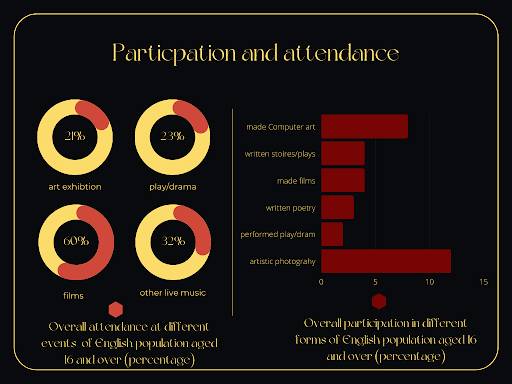 Participation and attendance of people aged 16 and over data from Culture is Bad for you
Participation and attendance of people aged 16 and over data from Culture is Bad for you
A and E is the abbreviation for Arts Emergency, a charity with the goal of making events accessible and helping young people feel comfortable to leave their comfort zones to attend events, apply for work experience and jobs – just as they should feel able to do. They are dedicated to providing hope and collective action to their community via mentoring and enlightening their community to the variety of opportunities available to them.
“It’s a community of people”, says Neil Griffiths, the Co-founder and CEO of Arts Emergency. Their mission is to make arts and humanities more accessible to young people from underrepresented backgrounds. Since 2013, they have opened up opportunities in higher education, the media, and the arts. In London, Brighton, Merseyside, and Greater Manchester, they now support more than 1,000 young people.
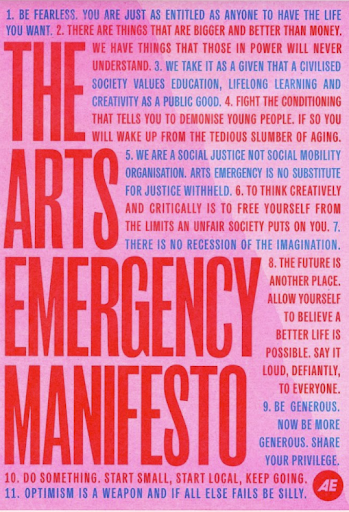 Arts Emergency manifesto
Arts Emergency manifesto
They provide one-year mentoring with emails every month showcasing the opportunities available. Each year comes with work experience placements specific for the young community of A and E. Their goal is a simple one to give young people a chance to break into the industry they desire, as they all should have an opportunity to contribute to the culture around them. They specifically focus on underrepresented backgrounds as the odds are not in their favour to join the cultural workforce. It’s important to do this to ensure a fair playing level for everyone entering the sector.
The power of the mentor
“If we don’t support young people, we won’t have authors in the future. That’s it!” (Murdoch)
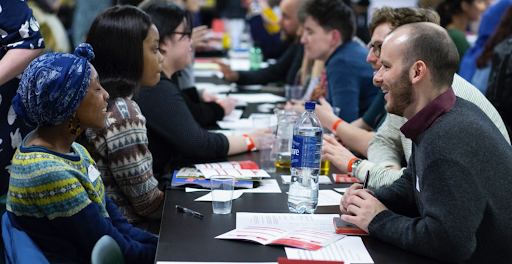 Arts Emergency speed network event with mentees and mentors
Arts Emergency speed network event with mentees and mentors
Once the current community within the sector retires, who’s left to carry on the arts? Young people are the future of art and culture. They are the ones who’ll remain to push the arts forward, stream new ideas and bring different perspectives to the table.
Mentoring allows for the mentee to have a better understanding of the career they want. It offers in-depth insight they may otherwise not have access to. And for those who don’t have access to networks or people in the industry they are invested in, mentoring is a great way to bridge the gap between lack of information and accessibility.
Author Emily E K Murdoch, didn’t know any authors growing up and when her time at university flew by, she had no idea what her first step was to achieve her goals. This confusion and sense of feeling lost is one reason why she joined Arts Emergency as a mentor providing work experience.
“Arts Emergency is a great way for young people who are in the same position I was to reach out and connect with creative professionals a few steps further along the road.”
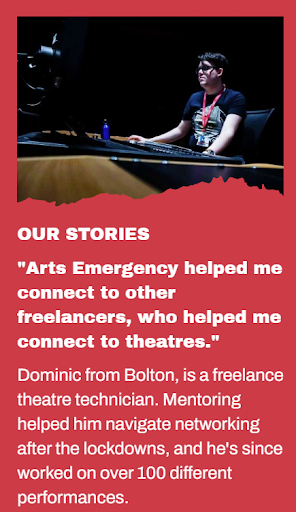
Amie, a 23-year-old Museums Assistant and Freelancer, was drawn to Arts Emergency for this reason, to be able to have a chance “of having guidance from a mentor who was working in the field I wanted to go into.”
Mentoring offers an in-depth insight with chances for the young person to learn secrets and ask any questions they have without feeling judged. Writer and Editorial Director at Transworld Publishers Alex Christofi, has offered his time to mentor a young person in Arts Emergency’s community as he understands how hard the first steps are for young people. He says:
“Because I certainly know that when I wanted to get into books, I didn't really know where to start. And if you have family connections, or if you've gone to, you know, an expensive school, of course, you're going to use whatever opportunities you're offered, because that's only natural. But there's a lot of people out there who don't have immediate access to those opportunities to find a way into the industry.”
Charities and support programmes like Arts Emergency become vital in ensuring every young person has the resources they need. Christofi likes, “the idea of making sure that the industry that I work in and I'm responsible for is going to be a bit more accessible.”
Arts Emergency has allowed hundreds of youths to connect to a wide range of people who have amazing experiences, stories and knowledge to share with a young person who may not know where to start or have access to resources. Sam, a 22-year-old filmmaker, found himself struggling at 17 to get into the film industry. He says,
“I didn't know if it was possible, and if it was, how it was possible.”
He was paired up with a mentor that was helpful to him and is still in contact with.The young community aren’t the only ones who get something out of it. The mentors get to see the progress their mentee goes through and feel their heart swell with pride as that once shy young person grows confident in their decisions. They watch their mentees take on everything they learned and put it into practice.
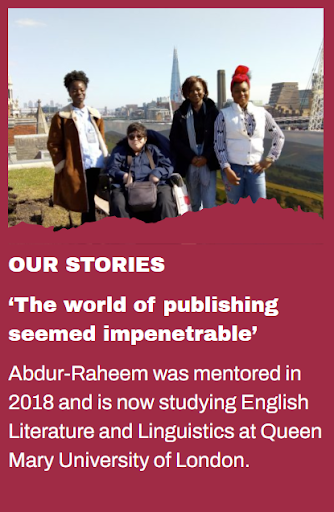
“To get to meet someone new, and you know, make a new friend and to start to help create the kind of community that you want to be part of. So I think it can be really rewarding, rewarding to be the mentor as well as to be mentored.” (Christofi)
Research can only go so far in helping someone understand the career they’re interested in. Facing the everyday life of being given tasks are more effective learning tools to help the young person experience their future career path. It helps them see if it’s what they want to do in the future as well as meet experienced people who have done their future job and can answer any questions they have.
Those electrifying nerves wiring the brain into overdrive making one feel afraid they’ll embarrass themselves or feel they aren’t good enough doesn’t last long in work experiences once it registers to the young person that this is what they come to love. Tina Dugard, Course Register at Rosetta Arts supervises the work experience placements, sees the inexperienced and unconfident young people grow to become loud, sometimes questioning where that terrified person went.
These experiences provide the young person so much from learning about the work environment and the behind the scenes of their chosen career, as well as widening their definition of what a career in the arts looks like. The most heard preconception is that this sector is all about who you know, which can discourage young people from entering it. It’s why Studio Noel opened up their organisation and Michelle Noel, Strategic Creative Director, says it is important to “give a fair start” to everyone. It also opens new talent and perspectives to these organisations. One work experience student at Studio Noel ended up securing a job there.
“Those that have talent seem to get sidelined at school very young, because there is not such an emphasis on visual arts. So it's really about getting to people young enough to let them know, yes, there are careers in the visual arts and it's interesting,” says Tina.
Young people are the future
Without young people, no new ideas or different and unique perspectives will be floating around, charming audiences, readers and listeners. We wouldn’t stargaze at art, overthinking the stories hidden by the paint on the canvas. And love wouldn’t have been found in the immersiveness that is music. Butterflies wouldn’t flutter in our stomachs as fundraisers have succeeded in generating money for a special cause. And we wouldn't have reddened cheeks laughing at the words on a small page.
To keep the sector alive and thriving, supporting young people is vital. It’ll boost many people’s confidence who may have thought the arts a towering building blocked with steel bars. Just one person in those young people’s lives is needed to shout between the bars that we are accessible and for everyone. In fact there’s plenty of things to do!
A simple support system can provide so many options, so many paths and destinations for the young person. Like Arts Emergency or the different people opening doors through work experience and mentoring, young people can see what’s behind the steel bars and finally learn those bars aren’t real. They have a shot at exploring the arts and learning more than they could have possibly imagined.


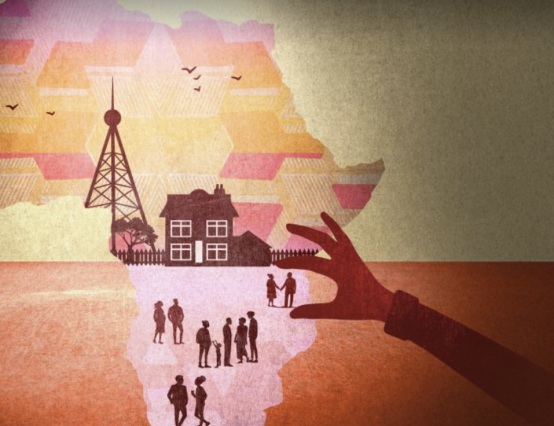
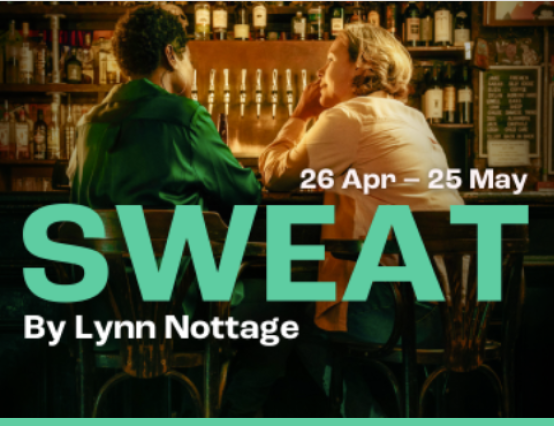
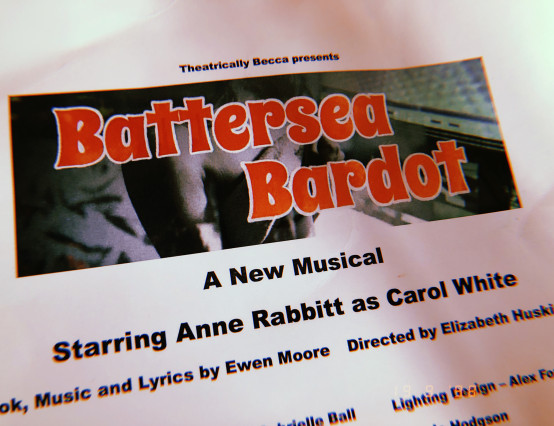
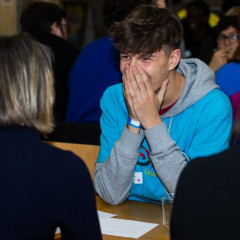


0 Comments